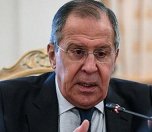Photo: Sputnik
Click to read the article in Turkish
President Recep Tayyip Erdoğan has left Turkey for Sochi to meet with President Vladimir Putin of Russia to discuss the developments after Ankara launched a military operation into northern Syria on October 9.
Turkey paused the "Operation Peace Spring" for five days on October 17 to allow the Syrian Democratic Forces (SDF) to withdraw from areas near the border, as part of an agreement with the US. The ceasefire will expire tonight.
Here are the topics Erdoğan and Putin will discuss:
Manbij, Kobani and the "safe zone"
After Turkey launched the operation, the SDF made a deal with the Syrian government, allowing it to enter several areas under its control, including Manbij, Kobani, Ayn Issa and Tall Tamer, which Turkey also plans to capture to set up a "safe zone".
Foreign Minister Mevlüt Çavuşoğlu said last week that they will discuss the situation in these places with Russia, while Erdoğan admitted that Syrian army's presence in Manbij "is not unfavorable" for Turkey.
"We will discuss Manbij and some parts of its with Russia and, in the upcoming period, we will take the necessary steps to ensure that the entire region will be turned into a safe zone," Çavuşoğlu said yesterday, indicating that Turkey will not oppose the presence of inthe Syrian army in those areas if SDF withdraws.
32-kilometer deep area and Adana Agreement
Erdoğan insists that the SDF should retreat to the south of the 32-kilometer deep area running 480 kilometers along the Syrian side of the border.
Russia, on the other hand, says it will support actions that are within the scope of the 1998 Adana Pact between Syria and Turkey, which was signed to ease Turkey's concerns regarding the outlawed Kurdistan Workers' Party (PKK). Accordingly, Damascus guarantees that it will not allow "terrorist activities" against Turkey in Syrian land.
Putin and Erdoğan mentioned the pact after a meeting on January 23, for the first time in nearly 20 years.
Sergey Lavrov, Russia's Foreign Minister, said last week that they will support cooperation between Ankara and Damascus in accordance with the pact.
While Turkey regards the Syrian Democratic Forces (SDF) and the People's Protection Units (YPG) as the Syrian extensions of the PKK, Russia considers none of the three entities as a terrorist group.
Dialogue between Damascus and the Kurds
Lavrov said yesterday that Moscow also tries to establish cooperation between the Damascus government and the Kurds.
"The goal is to create a situation where all Kurdish organizations in Syria are woven into the country's legal framework and constitution, so that there are no illegal armed units in Syria and no threat comes from Syria to the security of Turkey or any other country," he remarked.
"In order to achieve this goal, and we believe that it is the only right way to resolve the situation, there is a need for dialogue between the Kurds and Damascus, and we are ready to facilitate such a dialogue in every possible way. Both parties have expressed interest in securing Russia's assistance in the matter."
Oil-rich parts of the Syria
Who will control the oil and natural gas fields in Syria will also be on the table, according to Oleg Syromolotov, the Deputy Foreign Minister of Russia.
The richest part of the country in terms of oil and gas, Deir ez-Zor province, is currently held by the SDF, with the support of the US.
US President Donald Trump said yesterday, "We will work something out with the Kurds so they have some money. Maybe we will get some of our big companies to go in and do it properly."
Pentagon chief Mark Esper also said that they may keep some troops in the oil-rich parts of the country.
The ISIS fighters
Russia's Defense Minister said yesterday that prisons in northern Syria where captured ISIS militants are held became unprotected after Turkey launched the operation, according to Sputnik.
"As a result of the actions of the Turkish army in Syria, eight refugee camps and 12 prisons for foreign militants remained unprotected," Sergei Shoigu remarked on a visit to China.
"Some camps and facilities where terrorists from several dozen countries have been kept are currently not under guard, and terrorists have started to disperse." (PT/VK)





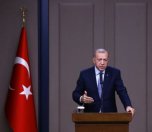
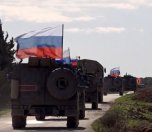
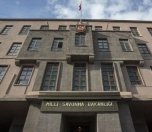
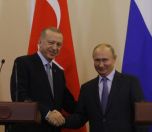
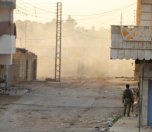
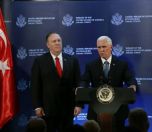
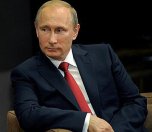
_erdogan-suriye1lckdkıscswl.jpg)
